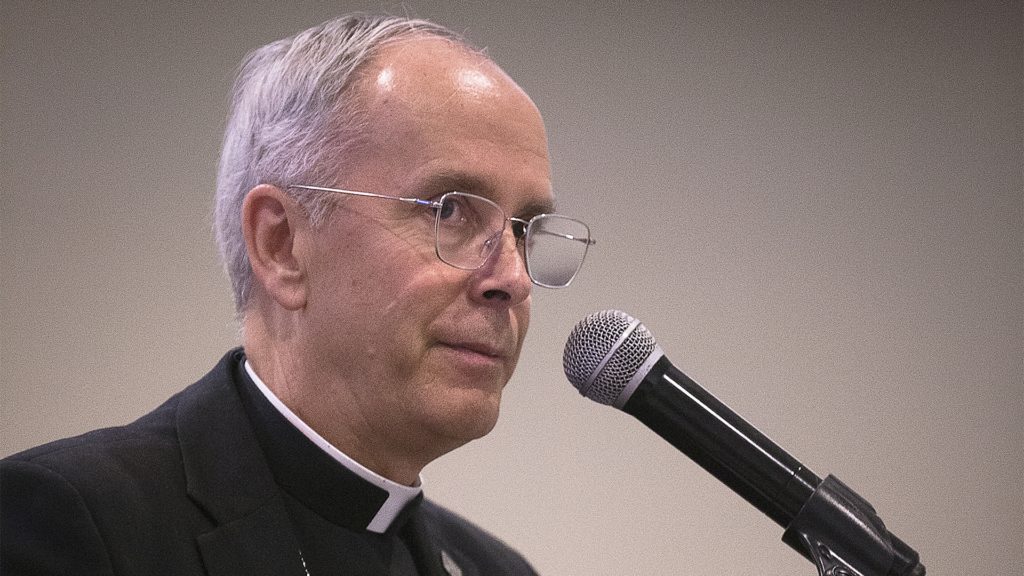From the perspective of the local bishop, the recent effort by the Texas Attorney General to close a Catholic migrant shelter in El Paso shows the impossible situation such organizations are in, balancing federal and state responses with their own mission to serve.
“On the one hand, we are challenged by serious federal neglect to provide a safe, orderly and humane response to migration at our southern border,” Bishop Mark Seitz of El Paso said in a Feb. 22 statement.
“On the other hand, we are now witnessing an escalating campaign of intimidation, fear and dehumanization in the State of Texas, one characterized by barbed wire, harsh new laws penalizing the act of seeking safety at our border, and the targeting of those who would offer aid as a response of faith,” continued Seitz, who is the U.S. Bishops’ Conference Migration Committee chair.
Texas Attorney General Ken Paxton announced his lawsuit against Annunciation House, a migrant shelter that has operated in El Paso since 1978 on Feb. 20. Paxton is seeking to revoke Annunciation House’s registration to operate in the state, citing public records his office has reviewed that show the organization is “engaged in legal violations such as facilitating legal entry to the United States, alien harboring, human smuggling, and operating a stash house.”
Annunciation House called the claims “unfounded,” and the attempt “illegal, immoral and anti-faith.”
“Annunciation House has kept hundreds of thousands of refugees coming through our city off the streets and given them food,” the organization said in a Feb. 21 statement. “The work helps serve our local businesses, our City, and immigration officials to keep people off the streets and give them a shelter while they come through our community.”
“If the work that Annunciation House conducts is illegal – so too is the work of our local hospitals, schools, and food banks,” the organization added.
Seitz also defended Annunciation House, saying that it has given an effective and compassionate response to the city’s immigration challenges; a response that is rooted in the Gospel.
“Its work is an example of our Catholic commitment to the poor, the Christian call to love one’s neighbor, and stepping into the breach to take action where many will not,” Seitz said. “Our Church, our city and our country owe Annunciation House a deep debt of gratitude.”
Seitz also made clear that the efforts of the Church at the border are not political, and instead about responding to the needs of those they encounter. And while he didn’t mention Paxton or the lawsuit directly, he emphasized that the Church will defend those who carry out this work, and not be intimidated.
“Let me be clear. For the Church’s part, we will endeavor to work with all in pursuit of the common good of our city and nation,” Seitz said. “We will vigorously defend the freedom of people of faith and goodwill to put deeply held religious convictions into practice.”
“We will not be intimidated in our work to serve Jesus Christ in our sisters and brothers fleeing danger and seeking to keep their families together,” Seitz added. “We will stand in solidarity with our community’s aid workers and volunteers, with our community non-profits assisting migrants, as well as with all those in the borderlands and throughout our state living under the weight of inhumane immigration policies.”

